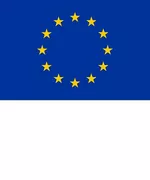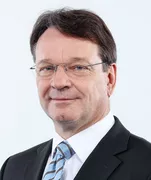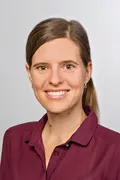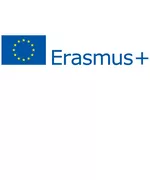The Chair of Sports Psychology and the Chair of Sports Educational Theory and Health Educational Theory has acquired two Erasmus+ projects. "Benefits of Outdoor Sports for Society" and the "Enriched Sport Activity Program which, in each case, will continue until 2020. The European Union promotes every project with a total of 400,000 euros. Both faculty organizations receive from it a sum of about 130,000 euros.
"In these exciting and interdisciplinary projects, we are happy to cooperate with scientists from the whole of Europe," says Prof. Dr. Jürgen Beckmann, the full professor of the Chair of Sports Psychology. "The Erasmus+ program is very attractive and offers great research possibilities in large projects which are carried out, at the same time, in different countries," says Prof. Dr. Yolanda Demetriou, the leader of the Professorship for Sports Educational Theory and Health Educational Theory.
Benefits of Outdoor Sports for Society
Within the scope of "Benefits of Outdoor Sports for Society" (BOSS), effects of sport in nature is placed in the foreground. "Outdoor sport indisputably has a special quality. For example, a kind of 'sensual, additional qualification' originates from the natural experience," explains Prof. Beckmann.
"The problem is that the various effects are hardly measurable, especially considering the background of economic aspects," according to Beckmann. This should now be changed through the interdisciplinary approach, with which a basis for future purposeful investments can be created.
Among other things, an evaluation is to be made on what has changed in existing outdoor projects in various regions and what influence this has on the site. Investments in outdoor sports are associated with different social or societal benefits. Here, among other things, is the effects on physical and mental health, active citizenship, the reduction of antisocial behavior and penal maturity, as well as an improved self-perception and increased environmental-consciousness.
Cooperation of eleven partner organizations from seven countries
"Our first job will now "be, first of all, the production of a systematic literature overview concerning which studies exist to influence outdoor programs on social well-being and inclusion worldwide up to now," explains Demetriou. Then, on the basis of this list of source and literature, the suitable measuring instruments are conceived and applied.
The funds for "Benefits of Outdoor Sports for Society" were raised by Dr. Barbara Eigenschenk, a staff member of the Professorship for Sports Educational and Health Educational Theory, as well as Faculty Management employee Andreas Thomann. Both are involved in the "European Network of Outdoor Sports" (ENOS), responsible for outdoor sports at the European level and support the interlinking of various actors in outdoor sports. Eleven partner organizations from France, England, Bulgaria, Spain, Portugal, Switzerland and Germany cooperate in this project. A sum of about 80,000 euros of support flows together for the Department of Sports Psychology and the Chair for Sports Educational and Health Educational Theory.
Enriched sports activity program
The second Erasmus+ project, the "Enriched Sport Activity Program", has also begun at the beginning of January. The idea for the project comes from Antonino Bianco of the Universita degli Studi di Palermo, a partner university of the Department of Sport and Health Sciences. Both TUM facilities participate here with a total of 54,000 euros of EU support.
The aim of the project is to incite citizens of Europe - or to incite the movement of individuals. After all: "physical inactivity is a problem which concerns the whole of Europe and one of the four largest factors for an untimely death," explains Demetriou. Thus, increases in inactivity, for example, also increase the risk of suffering from a civilization illness like cardiac infarction, stroke or diabetes. The central issue is: How can one succeed in motivating the Europeans long-term to the move?
In the first step, an intervention program is conceived. "Together with the European colleagues, we will develop a program that is based on topical scientific knowledge from didactics as well as from psychology," according to Beckmann. These measures are then carried out in the countries of nine co-operating colleges from Portugal, Italy, Croatia, Latvia, Spain, Turkey as well as Germany and the effects are evaluated. "I am glad in particular about the land comparisons which we can raise through the study design. This will be very interesting," says Demetriou.



